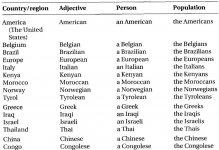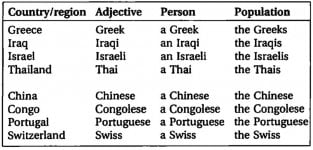TheParser
VIP Member
- Joined
- Dec 8, 2009
- Member Type
- Other
- Native Language
- English
- Home Country
- United States
- Current Location
- United States
NOT A TEACHER
Hello, TaiwanPofLee:
Here in the United States, the following sentences sound mildly offensive to many people:
"He is a Chinese."
"She is a black."
"He is a gay."
Some people theorize that the indefinite article seems to make them appear to be things rather than persons.
Hello, TaiwanPofLee:
Here in the United States, the following sentences sound mildly offensive to many people:
"He is a Chinese."
"She is a black."
"He is a gay."
Some people theorize that the indefinite article seems to make them appear to be things rather than persons.
Last edited:




